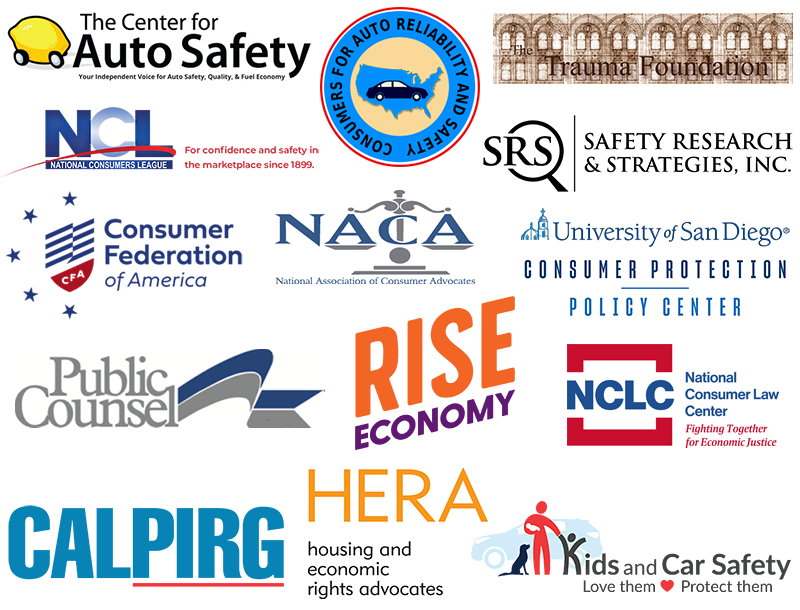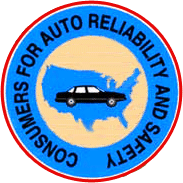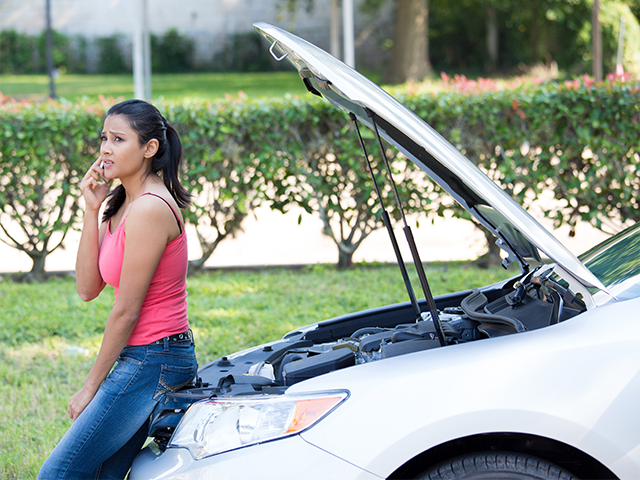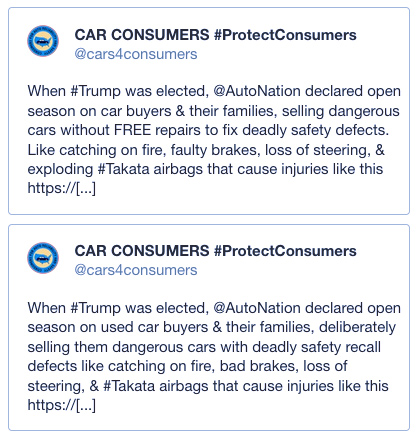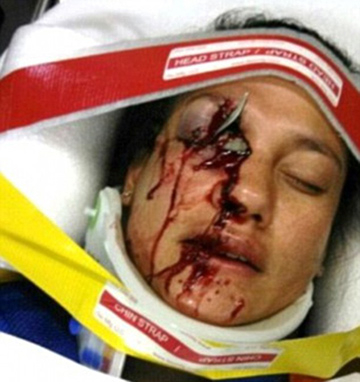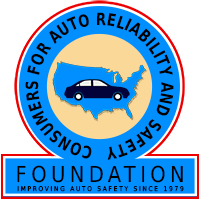CARS: Leading the fight to save lemon law protections for
California's new and used car buyers.
1970: Governor Ronald Reagan signs California's original "lemon law" into law

Governor Ronald Reagan signed California's original "lemon law."
Source: Photographs in the Carol M. Highsmith Archive, Library of Congress, Prints and Photographs Division.
Republican Governor and conservative icon Ronald Reagan signed California's original "lemon law," the Song-Beverly Consumer Warranty Act, into law in 1970. The Act applied only to products purchased for personal, family or household use, with a written warranty from the manufacturer. It requires manufacturers to live up to the promises they make to their customers when they entice them to buy their products, trumpeting the length and scope of their warranties to create a sense of security.
When the product is a motor vehicle, it is usually the single most-expensive purchase most Californians make, unless they also buy a home. Most vehicle owners rely on their cars, pickups and SUVs to transport themselves and their families safely to work, day care, and school, and to access medical care, food, and other necessities. Buying a vehicle with a "factory warranty" directly from the manufacturer adds thousands of dollars onto the price of a new or used vehicle.
When the auto manufacturer fails to honor its warranty and fails to fix serious defects, consumers are entitled to a refund or replacement vehicle. In those days, auto manufacturers churned out huge numbers of hazardous, faulty vehicles that frustrated and infuriated their customers, often leaving them stranded by the side of the road or without their vehicles for weeks on end, due to long delays in getting repairs that frequently failed to fix the problems. But hardly anyone used the Song-Beverly Act to get a refund or replacement vehicle. That's because the law required consumers to prove they had provided auto manufacturers the opportunity to make a "reasonable number" of repair attempts before the car was deemed to be a "lemon." But -- how would courts interpret what's "reasonable"? No one knew. The law was so vague, attorneys were reluctant to represent lemon owners. As a result, auto manufacturers ignored the law.
1979: The president and founder of Consumers for Auto Reliability and Safety initiates California's new, sweeter recipe for auto lemon-aid
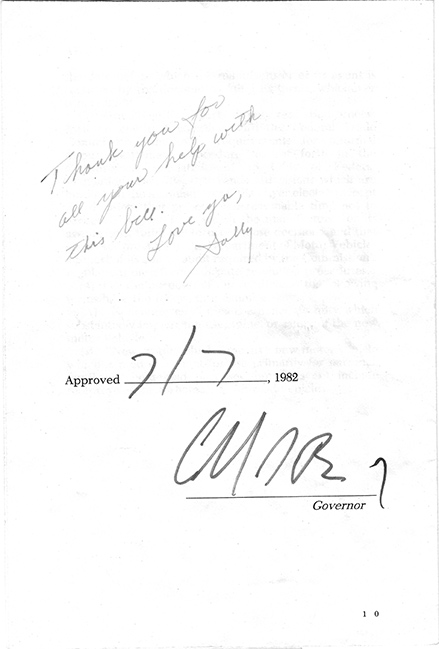
Governor Brown handed CARS founder Rosemary Shahan this signed copy of California's landmark auto lemon law, with a personal note added by Assemblymember Sally Tanner, at a lemon-aid party he hosted at the Capitol to celebrate the historic victory.
While picketing for five months outside a car dealership near San Diego, in a town named Lemon Grove, CARS founder and president Rosemary Shahan handed out fliers, did media interviews, and reached out to growing numbers of irate auto lemon owners, urging them to write to then-Assemblymember Bill Lockyer (D-San Leandro), Chair of the California Assembly Committee on Consumer Protection, for a new "lemon law" to empower lemon owners to fight back.
He wrote back that he was receiving a lot of mail from the San Diego area in favor of a "lemon law."
Lockyer held a public hearing in San Diego, where representatives from the auto manufacturers and consumer advocates were invited to testify. Rosemary alerted lemon owners and the media about the hearing, and also testified herself in favor of improving protections for lemon owners. Assemblymember Sally Tanner (D-El Monte) attended the hearing and listened intently to the testimony. A key question: What's a "reasonable number" of repair attempts before a faulty car is a lemon, in the eyes of the law?
A representative for Ford Motor Co. testified that Ford might take "30" tries to fix a lemon before they should have to buy it back. There were audible gasps among the audience. This was the first time a manufacturer actually said in public, on the record, what they considered to be "reasonable."
Tanner disagreed. In 1980, she championed legislation to define what is "reasonable" and create a legal presumption that when you take a defective car to the manufacturer's authorized dealership for repairs 4 times for a defect that "substantially impairs the use, value, or safety to the buyer or lessee," or if it is out of service for a total of 30 days during the first 12 months / 12,000 miles, it's presumed to be a lemon. It's like having the benefit of the doubt that enough is enough. The car doesn't have to turn yellow and squirt juice in your face before it's obvious it's a lemon.
For years, auto manufacturers fought tooth and nail against each of Sally Tanner's recipes for auto lemon-aid. From 1980-1981, they killed them. But Sally Tanner, Rosemary, and other supporters persisted. Desperate, angry lemon owners wrote impassioned letters to Sally Tanner, imploring her to keep fighting. When key votes were scheduled, her staff sorted the letters by legislative district and placed stacks of them on the desks of other lawmakers.
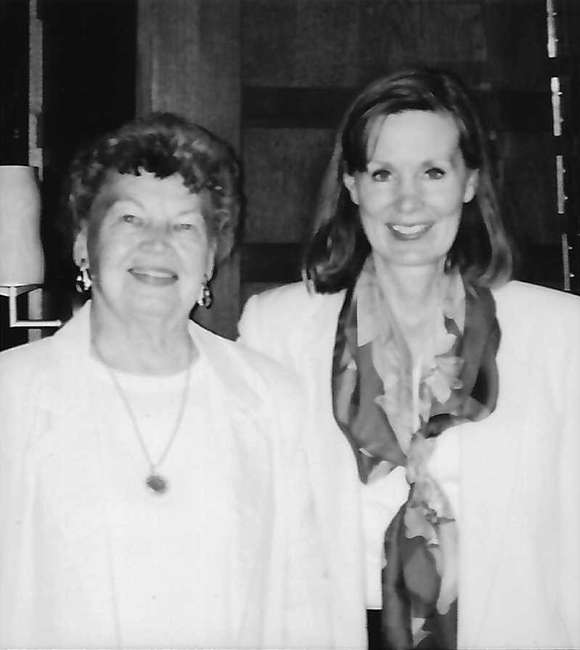
In 2002, Assemblymember Sally Tanner and CARS Founder Rosemary Shahan celebrated the 20th anniversary of Governor Brown's signing California's auto lemon law / Tanner Act.
Rosemary founded a non-profit organization, Motor Voters, and repeatedly flew to Sacramento to testify, meet with key legislative staff, and work on amendments, as an unpaid volunteer. She also did public outreach, held press events, and kept up efforts to win. She became active in the non-profit Consumer Federation of California (CFC), which had close ties with labor organizations. They initially opposed the bills. But she met with labor leaders, and they gradually changed their positions, realizing that their union members' livelihoods and the interests of lemon owners were in alignment. Eventually, CFC joined in supporting Tanner's legislation and helped win passage.
Lawmakers in Sacramento faced growing public pressure -- and not only from lemon owners. Car dealers complained they were were tired of being stuck in the middle between irate, frustrated customers and arrogant auto manufacturers who were in "lemon denial." Finally, in 1982, Tanner's lemon law bill passed with overwhelming bi-partisan votes, and only a few "no" votes. On July 7, 1982, Governor Jerry Brown hosted a signing party. Sally Tanner arranged for Rosemary to fly to Sacramento for the event, at the Assemblymember's expense. Governor Brown signed the historic, landmark legislation and personally poured glasses of lemon-aid for the guests.
Years later, the new lemon law was named in honor of Sally Tanner, the Tanner Consumer Protection Act. That law soon became the model for similar laws in all 50 states.
1998: CARS leads passage of first-in-the-nation legislation to prohibit auto manufacturers from gagging lemon owners
CARS was the official sponsor of AB 2410, authored by former Assemblymember Kevin Shelley (D-San Francisco). CARS asked Shelley, who was known for being strongly pro-consumer, to champion the bill, and worked closely with him and his staff to build support and win passage.
Before this important new consumer protection law passed, it was common for auto manufacturers to force lemon owners to sign away their First Amendment rights. Basically, the manufacturers insisted "If you want to get rid of this lemon that's making your life miserable, you have to sign away your right to tell anyone the truth about how sour your experience was. If you do tell the truth, we can sue you and win huge damages, plus our attorneys' fees." This landmark law freed lemon owners to tell the truth about their defective cars and how they were treated by the auto manufacturers. This law makes it harder for auto manufacturers to hide the truth about how defective their lemons really are.
Rosemary was also motivated to push for the law because auto manufacturers were engaged in widespread illegal "lemon laundering" -- reselling defective lemons to used car buyers without fixing the defects or disclosing their shameful past. They tried to get away with claiming they bought the lemons back merely as a "good will" gesture. In reality, the only reason they bought them back was that if they didn't, they could be penalized for failing to comply with the lemon law. The best witnesses regarding how sour their lemons were, and why they were repurchased, were the original lemon owners, who needed to be free to talk.
California remains the only state in the U.S. with a law specifically to protect lemon owners' free speech rights, helping deter the fraudulent resales of seriously defective lemon cars.
Auto manufacturers and the Civil Justice Association of California (CJAC) fought hard to kill the bill. They really hate it when their victims are free to speak up and tell the truth. The bill barely squeaked by in the Assembly and Senate, with almost all the Democrats voting "yes" and all of the Republicans voting "no," and was signed into law by Republican Governor Pete Wilson.
2000: CARS leads passage of legislation to expand lemon law protections to include small businesses and improve protections against unsafe lemons
CARS was the official sponsor of SB 1718, authored by Senator Byron Sher (D-Palo Alto). CARS asked Sher, an attorney who was known for being strongly pro-environment and pro-consumer, to champion the bill, and worked closely with him and his staff to build support for winning passage.
The original lemon law -- The Song Beverly Consumer Warranty Act -- covered only vehicles purchased for "personal, family, or household use." That meant that millions of self-employed people, such as real estate agents who needed their vehicles to drive clients to look at homes for sale, and landscapers who bought pickups so they could haul equipment, plants, bricks, rocks, and other materials, were usually stuck when they were sold a lemon. Who else lacked lemon law protections? Small mom-and-pop business owners, such as dry cleaners, carpet cleaners, florist shops, and other businesses that rely on their vehicles to serve their customers and stay in business. Some lost business and faced bankruptcy due to faulty vehicles that kept breaking down, or were unsafe for their employees to drive.
Due to vehement opposition from auto manufacturers, hardly any state's lemon laws cover business use. But Rosemary was moved by complaints she received from people whose livelihoods depended on having safe, reliable vehicles. It just didn't seem fair that they were forced to trade in their lemons at a huge loss, when they would have received a full refund if they didn't need their vehicles to make a living. She organized a letter-writing campaign, generated news coverage, and assisted small business owners and self-employed people so they could come from key parts of the state to Sacramento, where they testified in favor of the bill at legislative hearings.
The bill also improved protections against dangerously unsafe lemons that are likely to cause death or serious bodily injury if they are driven. The new law gives owners of unsafe lemons the benefit of the lemon law's presumption of "lemonitis" after only 2 failed repair attempts, instead of 4.
Auto manufacturers tried their darndest to kill the bill and to force CARS and the author to accept anti-consumer amendments. But Senator Sher and CARS held firm, and won passage without watering down California's recipe for lemon aid, greatly expanding the law to cover business use for individual entrepreneurs and small businesses with up to 5 vehicles weighing less than 10,000 pounds, and improving protections from vehicles with potentially deadly safety defects.
Despite auto manufacturers' vehement opposition, the bill squeaked by in the legislature and was signed into law by Governor Gray Davis.
2007: CARS leads the fight to provide lemon law protections to members of the military serving in the U.S. Armed Forces
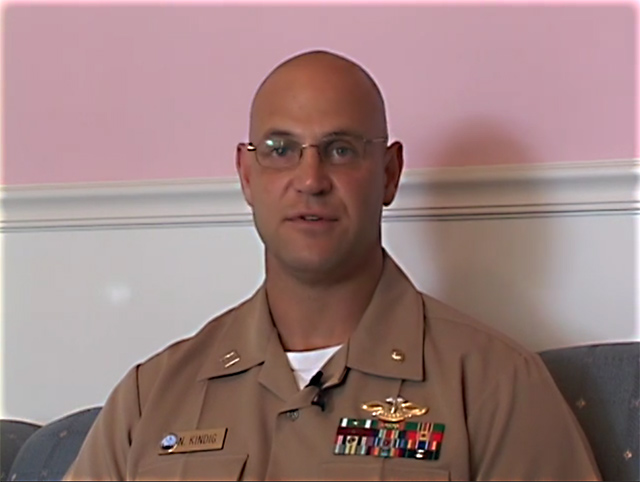
Navy Lt. Kindig's horrible experience with a Chrysler lemon made a huge difference, and now members of the Armed Forces stationed in California can use California's auto lemon law, even if they bought their lemon in another state.
CARS officially sponsored legislation (SB 234) authored by Senator Ellen Corbett (D-San Leandro) to expand California's auto lemon law to protect members of the Armed Forces, regardless where they purchase their lemon vehicles. The inspiration for the law came from the nightmarish experiences of military Servicemembers like Lt. Nathan Kindig, a courageous physician's assistant who served multiple tours of duty in Iraq and Afghanistan. Like many members of the Armed Forces, he and his family moved around -- a lot. He was a resident of Arkansas, where he still has close relatives. He bought a new Dodge Dakota in Washington State. It kept overheating and leaving them -- including his 7-year-old daughter -- stranded by the side of the road. When he finally got leave time to visit his parents in Arkansas, he ended up having to spend a big chunk of his scarce, precious leave trying to get repairs so the van would run, and he had to borrow his parents' car simply to have wheels.
At that time, California's lemon law applied only to vehicles purchased in California. So Chrysler refused to give him a refund. They basically told him to "pound sand." While he attempted to get them to do the right thing, he had to keep making payments for a totally unreliable lemon he and his wife couldn't drive. This caused them severe economic hardship, especially since his wife had planned to use the truck to haul furniture and generate income to supplement their meager military pay.
The founder of CARS, who was married to a Navy Judge Advocate General (JAG) for 20 years, learned about his plight, which unfortunately was far from being an isolated incident. She built a coalition to support the measure that included:
Lt. Gen. Michael Lehnert, Commanding General, United States Marine Corps, Marine Installations West
Vice Admiral Cutler Dawson, (Ret.), President and CEO, Navy Federal Credit Union
California State Commanders Veterans Council
National Guard Association of California
She also arranged for Lt. Kindig to participate in a press conference live from Iraq, and for his testimony to be recorded and presented before the California Senate Judiciary Committee. Despite opposition from auto manufacturers behind the scenes, and the threat of a Constitutional challenge, the law passed unanimously in both houses of the California Legislature and was signed into law by then-Gov. Schwarzenegger.
Read more:
California's Lemon Law Expanded to Protect Our Military Heroes and Their Families
